Support strong Canadian climate journalism for 2025
Some of the world's most prominent mayors agree that investment in education is one of the best ways to combat inequality in multicultural cities.
But before their dream of equal opportunity is realized, they must first conquer a major obstacle: the rising tuition costs of post-secondary education.
At the 12th Metropolis World Congress last week, mayors from Chicago to Berlin discussed challenges they face in providing educational opportunities to all of their constituents, regardless of race, income or immigration status. The topic arose during a wide-ranging panel discussion on inclusiveness in cities.
"Education is the great equalizer," said Chicago Mayor Rahm Emanuel, in a nod to the American 19th century education reformer Horace Mann, before sharing his own city's solution for tackling the costs of a university degree or college diploma.
The Chicago example
According to a recent report by the American education advocacy group, Young Invincibles, tuition costs in the United States have increased for the last several years. The average share of college fees and tuition paid by a student's family jumped 36 per cent in pre-recession 2008 to 50 per cent by 2014. As of 2015, the average cost of post-secondary education in the U.S. was USD$37,424, including room and board.
In some parts of Chicago — a city of 2.7 million people — more than 13 per cent of the population lives below the poverty threshold, according to numbers from the U.S. Census Bureau. To address the gap, Rahm said at the panel discussion on June 21, three years ago, Chicago created a STAR Scholarship program that offers free community college to high school students who maintain a 'B' grade average and 40 per cent off tuition costs at local universities, if they keep that average and want to pursue additional studies.
The results have been remarkable, said Emanuel.
“There are kids in Chicago who are now not only going past high school but going on to college and they’re the first in their families,” he told the panel audience proudly. “You can have a park, you can have all this, but if you don't have the shared experience of education, which is your passport to a higher income, careers, jobs and opportunities...it doesn't matter."
The first cohort of the Star Scholarship initiative graduated in June and numbers showed these students had a grade point average of 3.47 — far above the City Colleges average of 2.68. The graduation rates were much higher, too, with 54 per cent of the 890 students having already graduated or been projected to graduate with an associate degree by 2018, compared to a 17 per cent graduation rate for Chicago City Colleges.
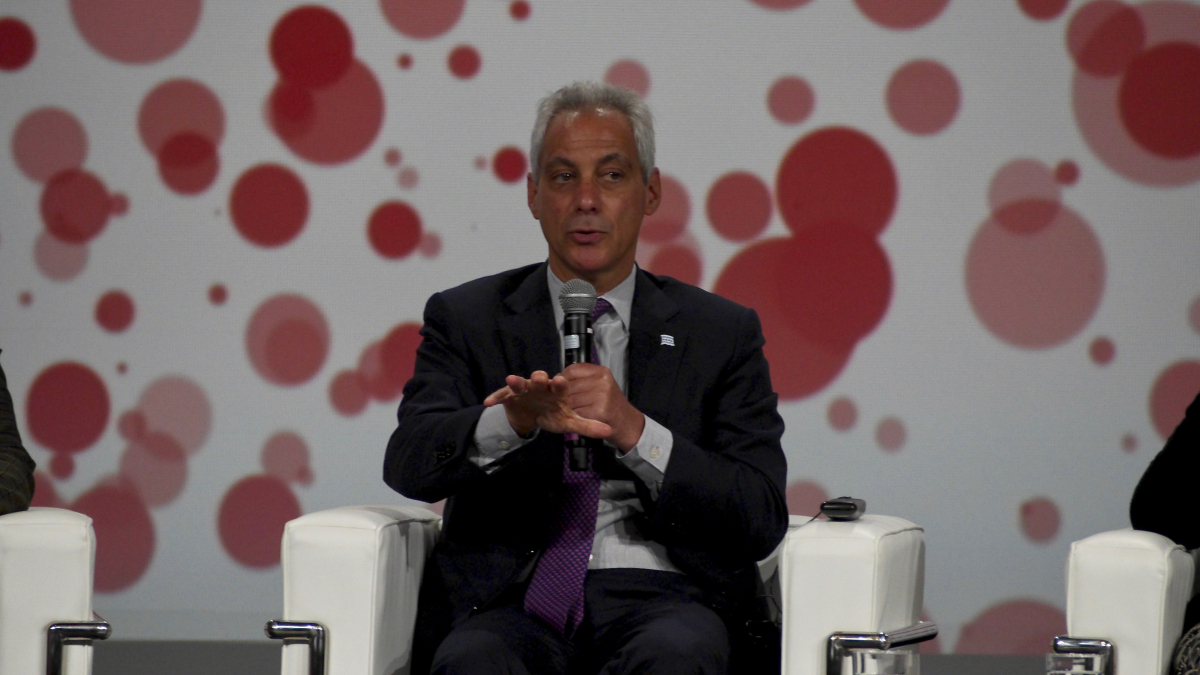
Tuition costs rising in Canada
During the Metropolis World Congress panel, Montreal Mayor Denis Coderre didn't speak about education, but focused on the importance of integrating newcomers through access to housing and employment instead.
Asked afterwards by National Observer, however, about rising tuition costs in Canada, the Government of Quebec confirmed that tuition fees in the province will go up 2.7 per cent in the fall. As it stands, tuition costs for an undergraduate degree in Quebec are $2,851 per year, versus $8,114 in Ontario, $7,218 in Nova Scotia and $5,534 in British Columbia, according to Statistics Canada.
The Canadian average was $6,373 for the 2016 to 2017 academic year, with only Newfoundland and Labrador having frozen its tuition fees. The statistic represents a 2.8 per cent increase from the 2015 to 2016 average.
Despite its own planned increase, Quebec's education ministry said it fundamentally believes in providing accessible education to all.
"For the Ministère de l'Education et de l'Enseignement supérieur, education is not only an important vector of social mobility but also a domain where we need to act to favour equality of chances," said ministry spokeswoman Esther Chouinard in an email to National Observer. "Literature on this topic lets us think the negative effects of a rise in tuition fees can be avoided with investment in financial aid to study. Thus, the tuition fee is not the only variable to study."
Between 2015 and 2016, more than $1.1 billion dollars of the provincial budget was spent in financial aid for students, including $600 million in individual scholarships, she explained.
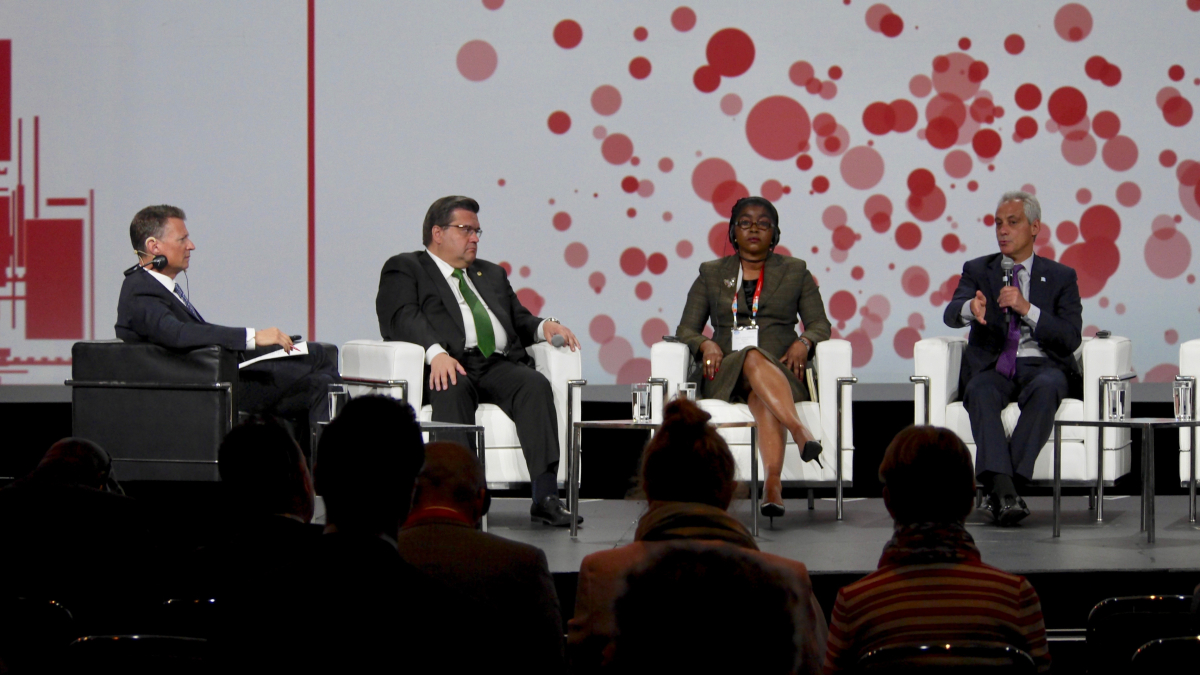
Equal opportunity for refugees
In Berlin, the problem is not the cost of education (both Germany and its capital have made education free from kindergarten to university), but an overwhelming influx of refugees. More than 79,000 refugees arrived in the city by the end of 2015 along, including many Syrians who fled conflict by crossing the Mediterranean sea.
At the Metropolis World Congress, Berlin Mayor Michael Müller said education is central to the city's integration strategy, and that ensuring refugee access to free education is a top priority. The municipality has started integration classes where they can learn German language skills and cultural values, such as freedom of speech and press, and gender equality.
These initiatives have cost Berlin about EUR400 million ($596 million) so far, he said, and it's all about reducing the barriers to success.
“Integration will cost money, time and efforts,” he explained during the panel discussion on inclusion. “It will not be easy and should not come at the detriment of other populations.”
By contrast, Canada resettled about 40,000 Syrian refugees between November 2015 and January 2017, and aims to resettle about 25,000 more this year. The U.S. took in about 70,000 refugees in 2015, before the inauguration of U.S. President Donald Trump.

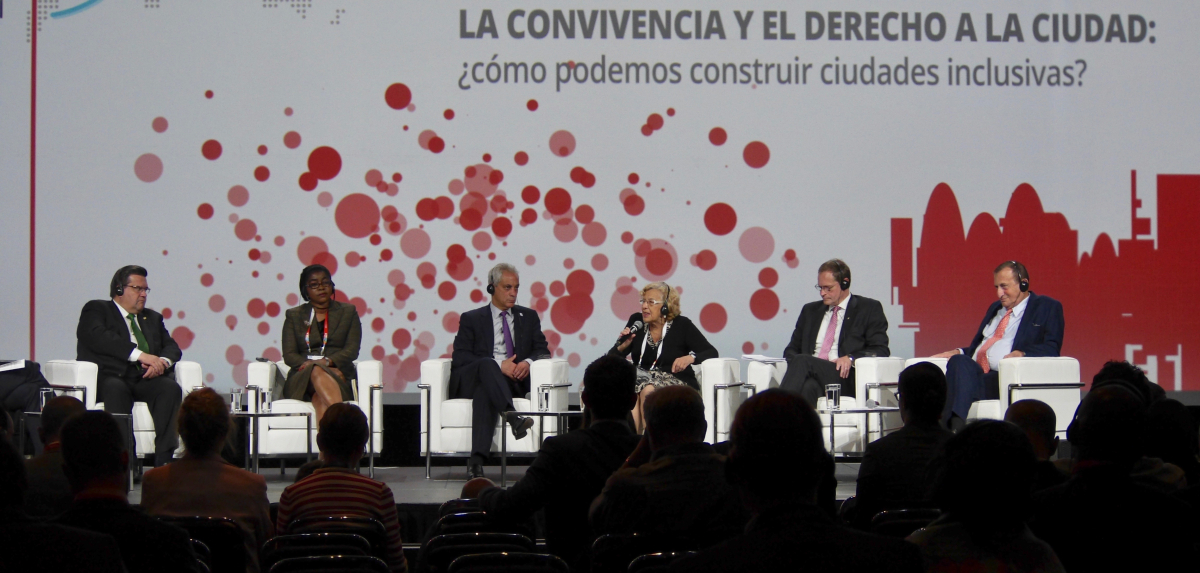

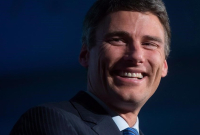
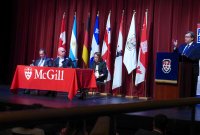

Comments
This is not surprising , and a meaningful companion piece would investigate and bring back the truly monumental data available on the equivalent but even more foundational results of the "Head Start" programs, started close to 40 years ago and addressing early childhood impacts.